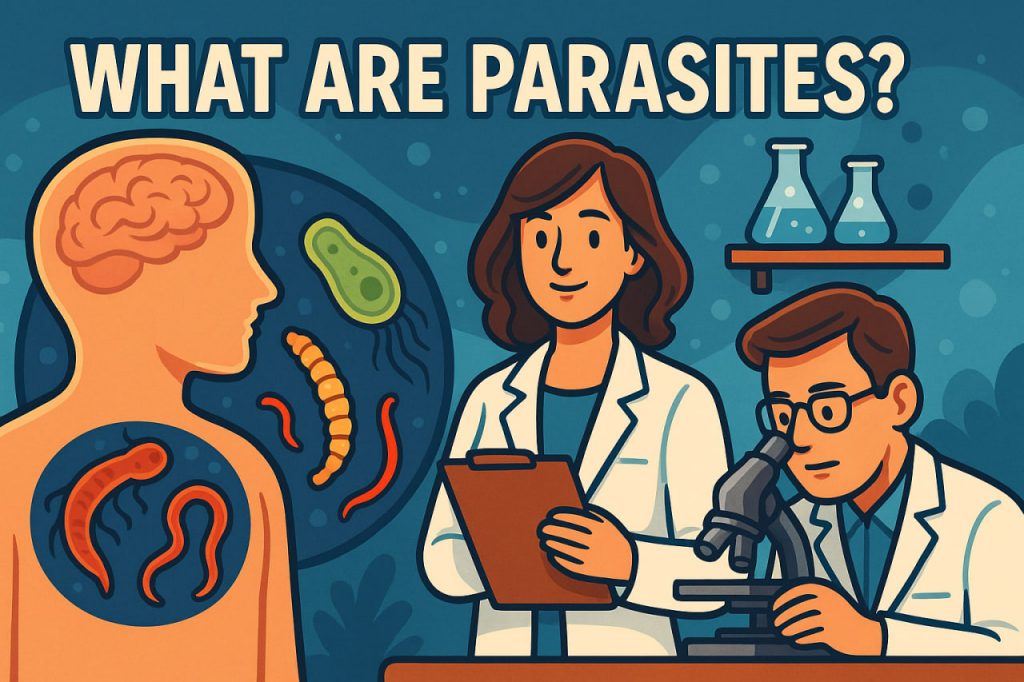Parasites are among the most fascinating and unsettling organisms in the natural world. They survive by living on or inside another organism—called the host—from which they draw nutrients and energy. Unlike predators that kill their prey quickly, parasites often maintain a delicate balance, keeping their host alive long enough to sustain themselves. This complex relationship exists across every ecosystem—from deep oceans to human bodies—shaping evolution, biodiversity, and even behavior in ways science is only beginning to understand.
The Nature of Parasitism
In biology, parasitism is a type of symbiotic relationship where one organism benefits at the expense of another. Parasites range from microscopic organisms like protozoa to visible creatures such as worms, ticks, and lice. They have evolved specialized adaptations—hooks, suckers, camouflage, and complex life cycles—to ensure survival. Some parasites depend on a single host, while others use multiple hosts during different stages of their development. This remarkable diversity makes parasites some of the most adaptable species on the planet.
Types of Parasites
Biologists generally classify parasites into three main categories:
- Ectoparasites – These live on the surface of their host, such as fleas, lice, and ticks. They often cause irritation, itching, and secondary infections.
- Endoparasites – These reside inside the host’s body, often in organs like the intestines, blood, or tissues. Examples include tapeworms and roundworms.
- Epiparasites – Less common, these are parasites that live on other parasites. For instance, some small flies feed on parasitic wasps.
Each type plays a specific ecological role, influencing host populations and even regulating disease dynamics in ecosystems.
Parasites in Humans and Animals
In humans, parasites can enter the body through contaminated food, water, insect bites, or direct contact. Common human parasites include Giardia, Toxoplasma, and Plasmodium (the cause of malaria). Some cause mild discomfort, while others trigger severe diseases. Animals are equally affected—livestock can suffer from parasitic infections that reduce productivity, while wild species often host parasites that regulate population balance. Veterinarians and ecologists agree that parasites, though harmful individually, play a vital role in maintaining ecological equilibrium.
The Complex Life of Parasites
Many parasites have multi-stage life cycles involving different hosts. For example, the tapeworm begins in small animals or insects and matures in the intestines of mammals. The Plasmodium parasite, transmitted by mosquitoes, must complete stages in both mosquito and human hosts to reproduce. This complexity makes eradication challenging. Scientists study these life cycles not only to fight disease but also to understand evolution—since parasitic adaptation reveals how organisms co-evolve over time.
The Impact on Human Health
Parasites can affect nearly every organ system. Intestinal parasites can cause malnutrition and fatigue; blood parasites can lead to anemia or fever; and tissue parasites can damage the liver, lungs, or brain. According to the World Health Organization (WHO), over 3 billion people are affected by parasitic diseases worldwide, particularly in tropical regions. Experts recommend preventive hygiene, clean water access, and proper cooking as the best protection. However, treatment and diagnosis must always be managed by qualified healthcare professionals.
Parasites That Manipulate Behavior
One of the most astonishing aspects of parasitology is behavioral manipulation. Some parasites alter their host’s actions to increase their chances of transmission. The Toxoplasma gondii parasite, for example, makes infected rodents less afraid of cats, ensuring they are eaten so the parasite can reach its next host. Similarly, parasitic fungi like Ophiocordyceps control insects, turning them into “zombies” that climb to high places before dying—spreading fungal spores to new victims. These eerie mechanisms demonstrate how parasites can literally hijack the nervous system of other species.
Expert Perspectives
Parasitologists such as Dr. Carl Zimmer and Dr. Sarah Perkins emphasize that parasites are not merely pests—they are key players in evolution and biodiversity. Without them, ecosystems might collapse. By influencing population dynamics and immune system development, parasites help maintain balance. Medical researchers, meanwhile, are exploring how some parasites could be used therapeutically. Certain worms, for instance, appear to regulate autoimmune diseases by calming the immune system—a controversial but promising field known as helminth therapy.
The Ecological and Ethical Dimension
Beyond medicine, parasites play crucial roles in natural selection. They drive evolutionary arms races, pushing hosts to develop stronger immune defenses. However, human activity—pollution, deforestation, and climate change—is altering the balance, allowing some parasites to spread into new areas. Ethicists and environmentalists argue that understanding parasitism teaches humility: even the smallest organisms can shape the fate of entire ecosystems.
Interesting Facts
- There are more parasitic species on Earth than free-living ones.
- The tongue-eating louse replaces the tongue of a fish and lives inside its mouth.
- Some parasites can survive freezing or desiccation for years before reactivating.
- Toxoplasma gondii infects about one-third of the world’s human population.
- In ecosystems, removing parasites can reduce biodiversity rather than increase it.
Glossary
- Host – The organism that provides nutrients and shelter to a parasite.
- Protozoa – Single-celled microscopic organisms, some of which are parasitic.
- Ectoparasite – A parasite that lives on the surface of its host’s body.
- Endoparasite – A parasite that lives inside the body of its host.
- Helminth – A parasitic worm, such as a tapeworm or fluke.
- Symbiosis – A close biological interaction between two different species.
- Zoonotic – A disease or infection transmitted between animals and humans.
- Malaria – A life-threatening disease caused by Plasmodium parasites transmitted through mosquito bites.
- Behavioral Manipulation – A process where parasites alter host behavior to enhance their own survival.
- Helminth Therapy – The medical use of controlled parasitic exposure to modulate the immune system.


